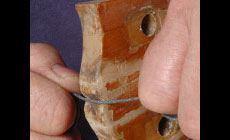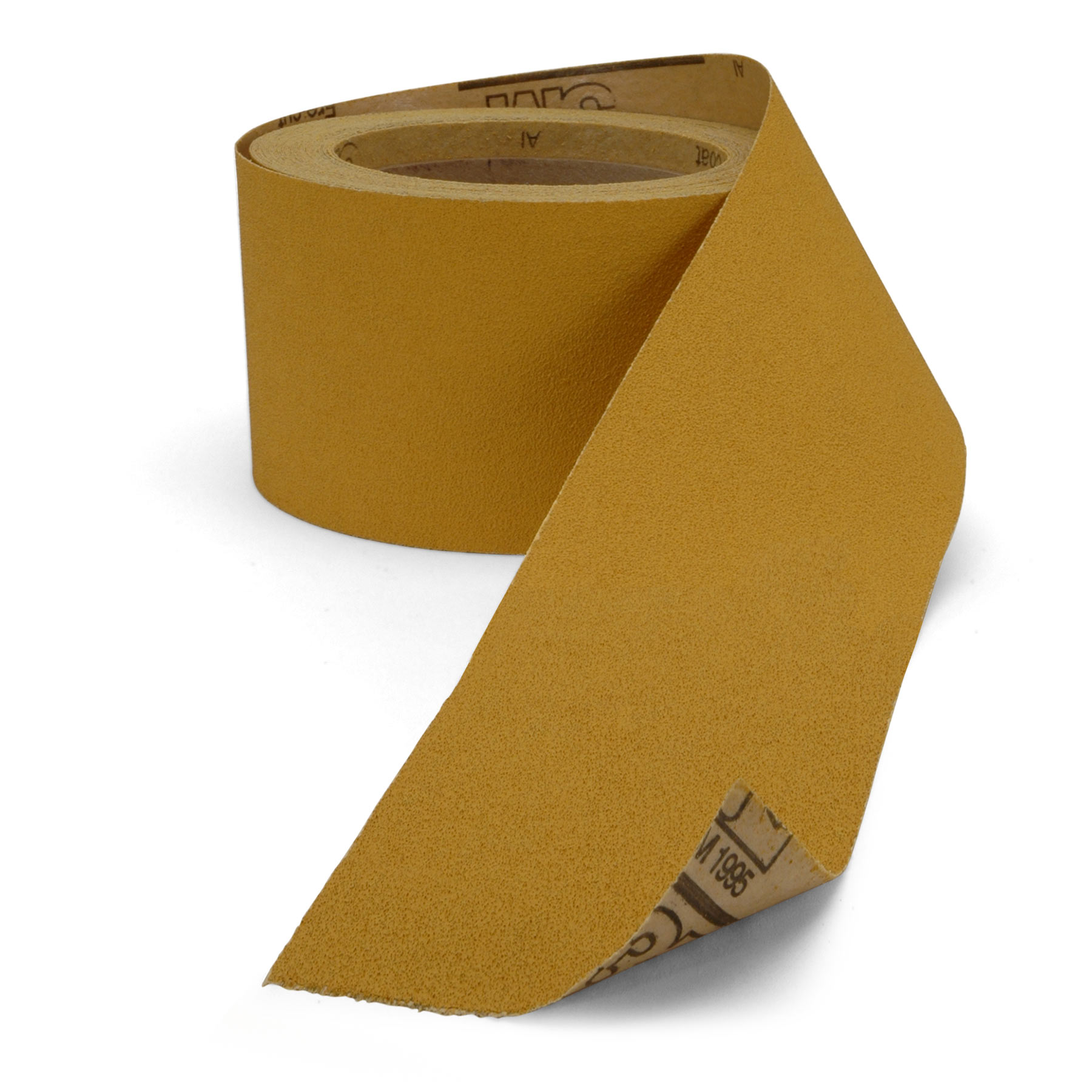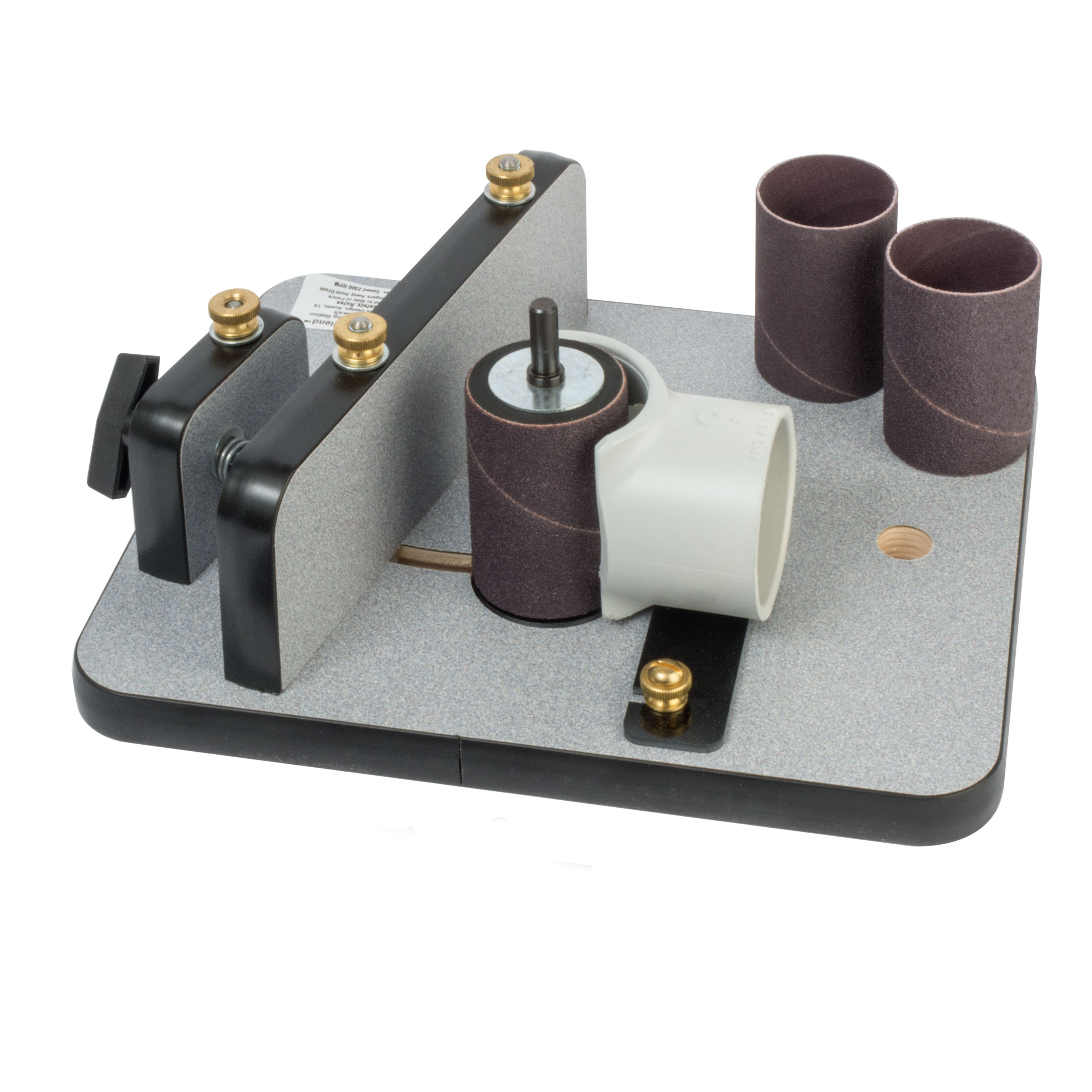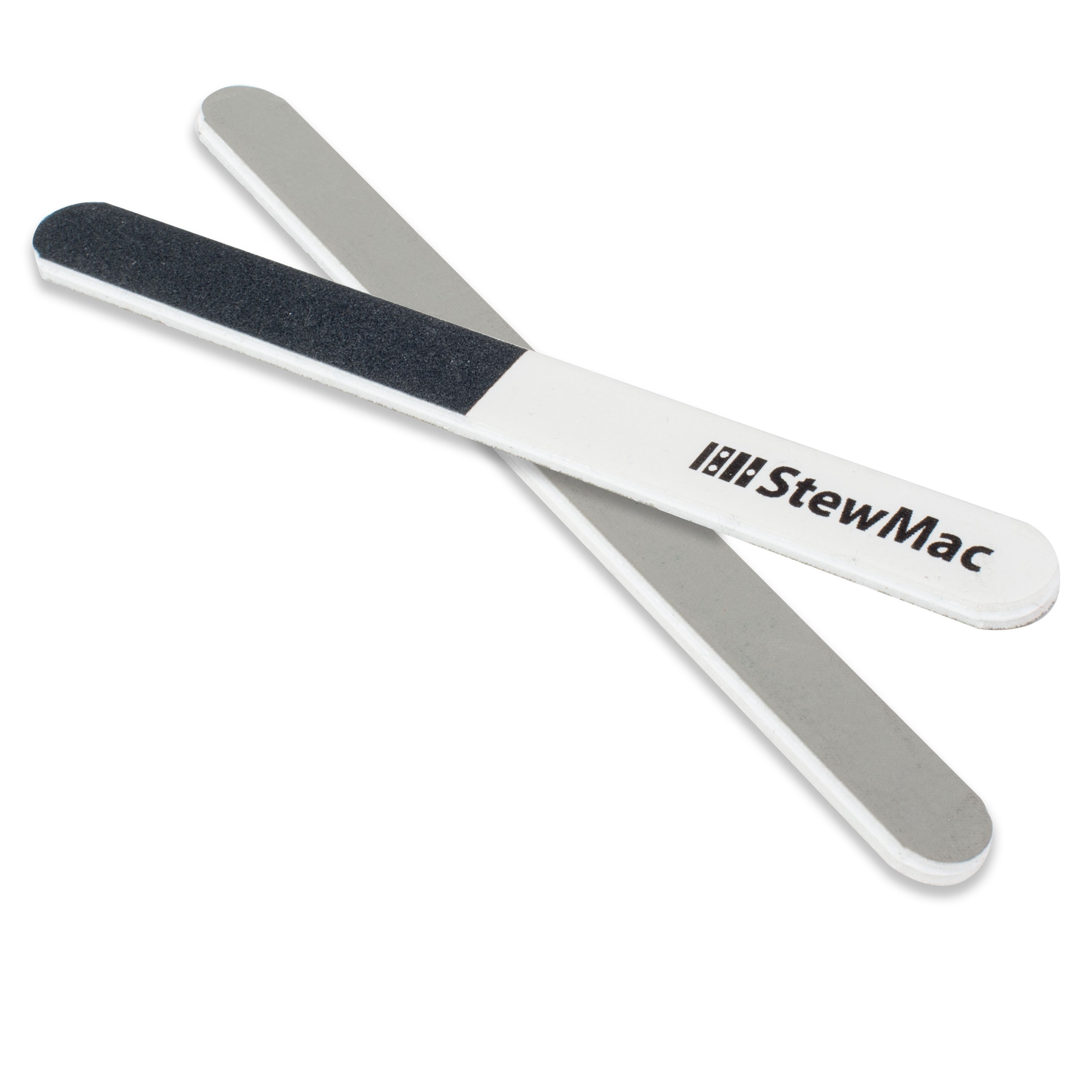Which sandpaper to use for instrument work?
Some of these sandpapers are pretty unusual and handy. Asking around, I found that everybody’s got a favorite sanding paper—and advice for using it. I’ll bet you’ll use one of these tips in your shop today. IThis was a new one to me. Don MacRostie made this paddle from 3/8" plywood with a patch of Stikit self-adhesive sandpaper on each end. Don uses the paddle to remove glue squeeze-out and high spots on his Red Diamond mandolins after gluing the binding on. It's really easy to control, and works fast. Here’s Todd Sams (Sams Guitars): “When you’re spraying build coats (building a finish), use 320-grit Fre-Cut first, then spray and sand again. After that coat, move on to 400, 600, and 800-grit. Don't skip grits! Using all the grits makes the work easier for each sheet, so they last a lot longer. After making a small “drop-fill” finish repair, I'll strip-sand the spot by pulling ribbons of micro finishing paper over it using fingertip pressure. I start with Fre-Cut Gold, running the grits from 320-800, then switch to the micro papers from 1000 through 2000. Each grit gets 2 or 3 pulls before I go on to the next. The whole process takes less than two minutes. After strip-sanding I'll buff the spot out with micro-mesh pads. They’re flexible, and wrap around any shape. That’s useful for peghead repairs, because of all the curves and edges. They’re good for polishing bone nuts, too. That’s my opinion anyhow, but Don MacRostie makes a good argument: Don says polishing papers are the only way he'll polish pearl and bone nuts anymore. He used to use liquid polishing compound, and it always darkened the nut by rubbing dirty residue into the pores. Polishing papers stay clean and dry, so the nut stays bright. Erick Coleman recommends abrasive cord for sanding tight spots like the groove in the top of a Gibson peghead. He also uses it as the last step in finishing a nut’s string slots. It gets rid of chatter marks left by files, and leaves the slot glassy smooth. So there you have a handful of sanding tips. You’ve probably got more to add to the list; if you do, I hope you’ll send them my way!Which sandpaper to choose? Specialty papers for instrument work... What are they all about?

Don's sanding paddle

Don't skip grits between spray coats
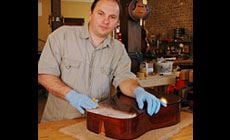
Okay, I've got a tip: strip-sanding
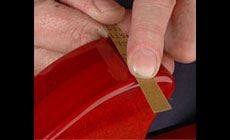
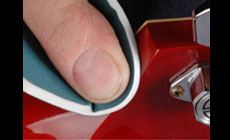
Polishing without blackening
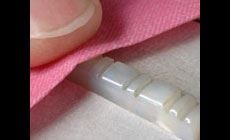
Slots and tight spots
